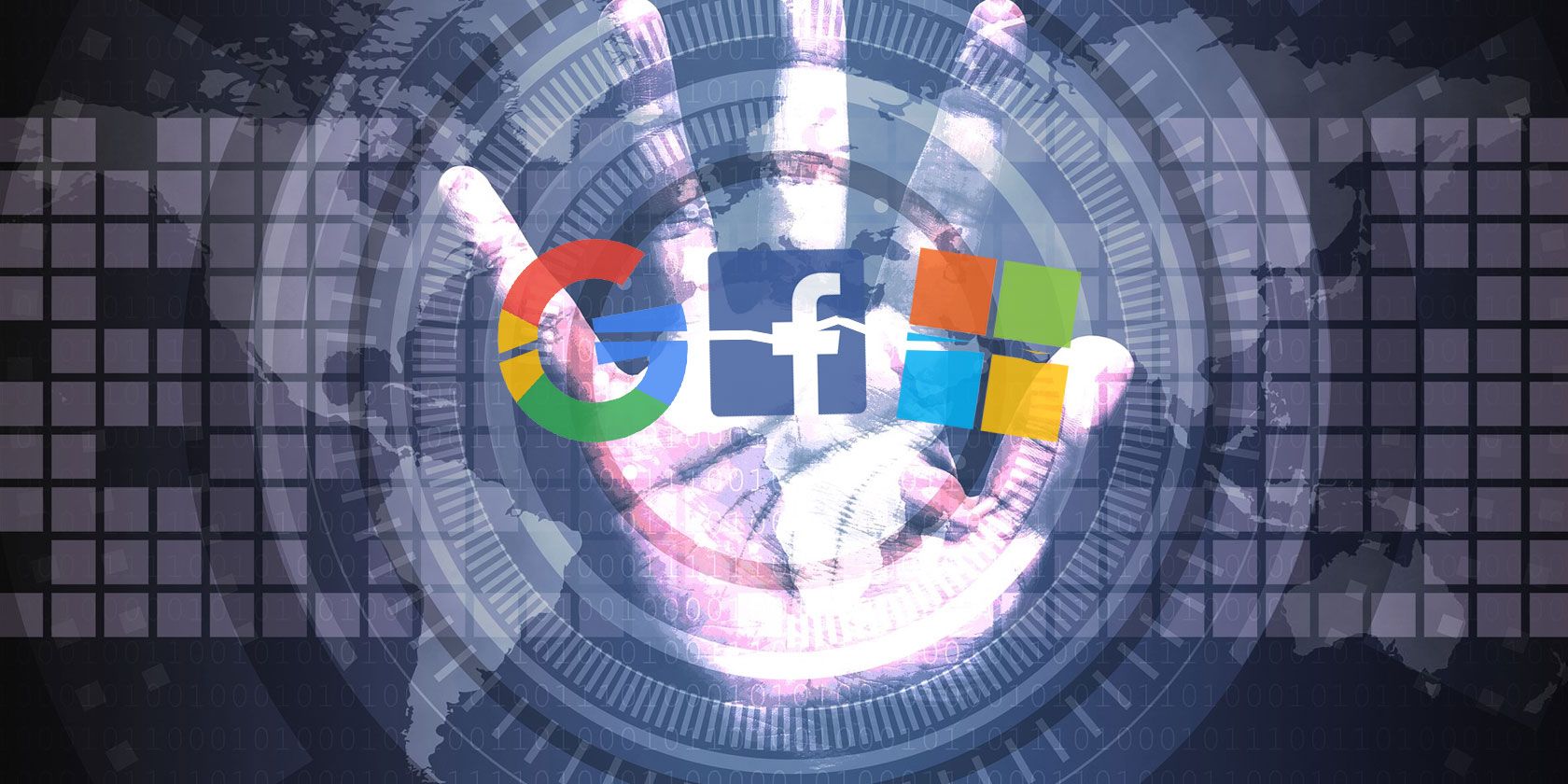3 Actionable Steps to Improving Your Online Privacy Right Now

You’re worried about Facebook and Cambridge Analytica. You know you’re being tracked by advertisers each time you go online. And your operating system is recording your online activity and searches.
This isn’t privacy, it’s surveillance. But it doesn’t have to be this way. You can improve your online privacy right now in just three steps.
You’re the Product and You’re for Sale
Considering the risks from viruses, keyloggers, and ransomware, dealing with online security is bad enough. Having online privacy issues on top of this is more than inconvenient. After all, what business is it of online services that you don’t subscribe to just what websites you use, where you go offline, and who you’re friends with?
Well, the problem is, you’ve given them permission to keep records of these things. By signing up for free accounts, these permissions are implied. These accounts might be free, but they come with a cost.
If you are not paying for it, you're not the customer; you're the product being sold.
— Andrew Lewis (@andlewis) September 13, 2010
It’s a phrase you might have heard before today. If not, then I suggest you repeat it a couple of times, as you consider all of the free accounts to online services that you own.
They’re not really free at all, are they?
The companies impeding your privacy with the greatest frequency are household names. By rejecting their tactics, you can help abandon them (or at least their privacy-breaching business model) to history.
It’s time to say “goodbye” to Facebook, Google, and Microsoft.
Step 1: Abandon Facebook
You’ve probably seen the adverts: Facebook is sorry. They didn’t mean to be cruel to you, and are working hard to make it up to you and make their service better…
Better at what?
Listen, we’re way beyond trusting Facebook. Sure, there may be reasons to stick with the service, but the best thing you can do is stop using Facebook.
After all, we were only just coming to terms with the Cambridge Analytica scandal (your Facebook data was used to influence political campaigns) and the fact that Facebook was spying on your instant messages
Quitting Facebook will improve your online privacy considerably. You’ll reduce your exposure to online ads, to scammers, and to cyber stalkers. But if you absolutely need it to stay in touch with people who for some reason can’t use email, then at least take the time to manage your Facebook privacy settings.
Step 2: Abandon Google
You may have used Google to find this article. Perhaps you have Gmail, or a Google Drive. There’s an over 50 percent chance that you’re using an Android device, which you’ve tied your Google account to.
Google is everywhere. Search, advertising, smartphones and computers, the Internet of Things. Its tentacles reach everywhere; Google knows everything about you. Over time, it can even form a history of you, a record of the things you’ve done.
It might even predict what you do next. Perhaps it already has. Along with Facebook, Google is the biggest privacy drain out there. Providing a unifying force of big business versus Joe Public, it is the facility by which we can be tracked (online and offline), and oils the wheels for every purchase we make, whether we need the item or not.
No wonder Google dropped its “Don’t be evil” motto.
You should be deeply concerned about Google’s knowledge. It’s worth taking the time to clear your Google account and regain your privacy. While you’re at it, grab your mobile and do something about Android ads.
You don’t even really need Google on your Android device. Android is based on AOSP, an open source mobile operating system. As such, you can remove Google from your phone. While you’re fixing your Google-related privacy issues, meanwhile, take the time to quit Gmail. It’s hard, but you have strong alternatives like privacy-minded ProtonMail, developed by CERN and MIT scientists with end-to-end encryption.
Step 3: Abandon Microsoft
We’re not taking sides here. The tech giant has been a part of our lives for years, and since the late 1990s it has successfully wormed its way into our homes, fulfilling its founder Bill Gates’ dream of a PC in every home.
Over the years, Microsoft has been at the center of a number of online security controversies. Often, these problems were down to poor security on the Windows operating system. While this is problem that has been largely left in the past, security issues in Windows have been supplanted by privacy issues.
Note: This isn’t true only of Windows 10. While older versions of Windows were less clear about what was collected, these days you’re at least given an idea of just how much data they collect.
Windows 10 is designed like a desktop version of Android. It records a vast volume of data about your activities; you have a unique tracking reference for advertisers. Windows 10 features pre-installed apps that you don’t need, as ever, but it also includes pop-ups for apps you might be interested in installing.
You can find out more about how Windows 10 is impacting your privacy by checking our Windows 10 privacy guide. When you’re done reading that, take the time to follow our guide to Windows 10 privacy settings—or better yet, switch to Linux and never look back.
It Won’t Be Easy, But Online Privacy Is Worth It
Binning these three companies, minimizing their effect on your life, probably won’t solve privacy issues. But it will deal with the overwhelming majority of them.
All you need to do is take the time to decouple from Facebook, Google, and Microsoft, and start enjoying your life without worrying about where the next privacy breach is coming from.
If you want to go further, first educate yourself with these online privacy resources.
Read the full article: 3 Actionable Steps to Improving Your Online Privacy Right Now

